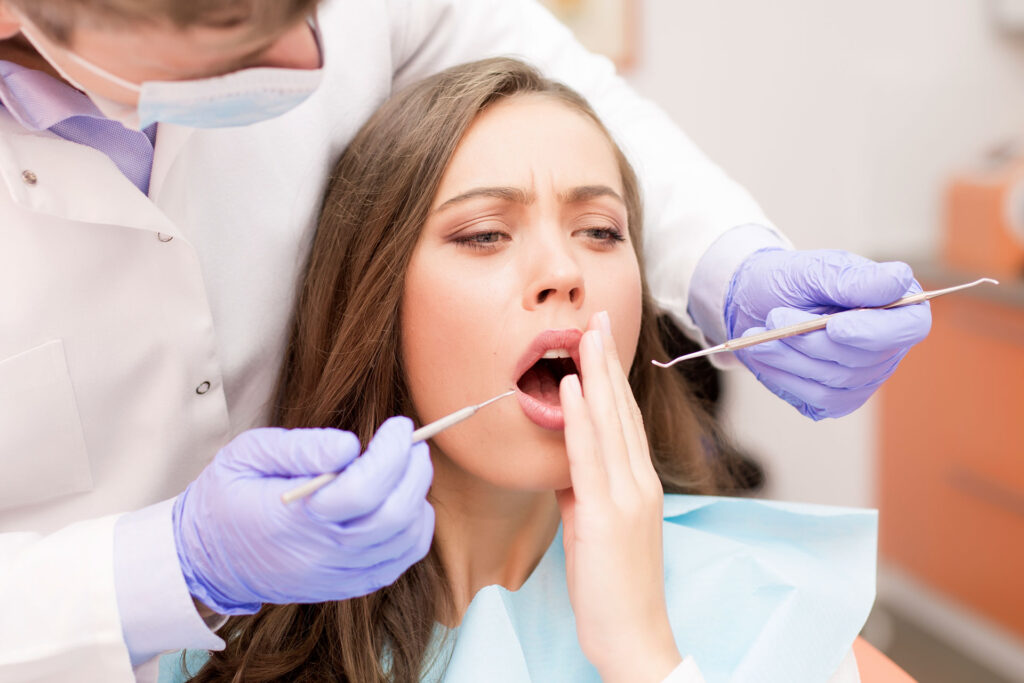
A dental abscess is a build-up of pus around the root of a tooth caused by a bacterial infection. Tooth abscesses can affect children, adults and the elderly.
Tooth decay, tooth fracture, chipping or other injury can leave the tooth pulp exposed and cause the tooth to become infected. The infection causes pus to build up in the tooth and the gums to swell.
In most cases, a tooth abscess appears as a pimple-like swelling on the gum. A common symptom is sharp and persistent pain. Some of the symptoms of an abscess on the teeth and gums are as follows.
- Pain
- High fever
- Bad breath
- Bad taste in the mouth
- Tooth sensitivity
- Redness and swelling of the gums
- Swelling of the jaw
- Loosening of the tooth
- Swelling of the lymph nodes
- Tooth discoloration
- Body pain
- Increased heart rate
Abscesses do not go away on their own because they are caused by an infection. They require professional treatment. When a tooth abscess is left untreated, the infection remains active and continues to spread. It can spread to other parts of the jaw and cause life-threatening complications.
A dental abscess is diagnosed with the help of a review of symptoms, dental examination and dental x-rays. Treatment is done by draining the abscess and performing deep teeth cleaning and using antibiotics. In some cases, root canal treatment and tooth extraction may be necessary.
A tooth abscess should never be tried to burst. Although some home remedies can help relieve the pain, they are not enough to treat the infection.
A tooth abscess can form on the inside of the tooth or in the surrounding gum tissue. An abscess on the tooth is called a periapical abscess. An abscess in the gum is called a periodontal abscess. Both have a similar appearance and require almost the same treatment procedure.
The best way to prevent infection is to have good oral hygiene. Brushing your teeth daily, flossing between your teeth, using an appropriately hard toothbrush and fluoride toothpaste provide excellent oral hygiene and reduce the risk of abscesses.
Dental abscesses are not contagious, but the bacteria that cause abscesses can spread through saliva or contact. Therefore, sharing personal belongings should be avoided if a tooth abscess is present.
The sooner a tooth abscess is treated, the better. It is therefore important to visit a dental clinic as soon as possible. Even if there is no discomfort, it is necessary to visit the dentist regularly (at least every 6 months).





